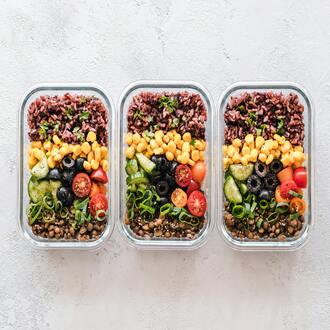Transcription Vegetables allowed and forbidden in the ketogenic diet
The ketogenic diet is a nutritional approach characterized by a high intake of healthy fats, a moderate amount of protein and a significant restriction of carbohydrates. Ketosis, a metabolic state in which the body uses fats as its primary source of energy, is the main goal of this diet.
However, many wonder which vegetables are allowed and which are prohibited on the ketogenic diet, as some may have significant carbohydrate content.
In this session, we will explore in detail which vegetables are suitable to include in a ketogenic diet and which are best to avoid in order to stay in ketosis and get the full benefits of this diet.
Introduction to the ketogenic diet and the importance of vegetables
The ketogenic diet has become popular for its ability to promote weight loss, improve metabolic health and increase energy levels. Despite its focus on fats, vegetables also play an essential role in this eating plan. They are a rich source of nutrients, vitamins, minerals and antioxidants that are critical to overall wellness.
Carbohydrates in vegetables and their impact on ketosis
One of the main challenges in following a ketogenic diet is the need to keep carbohydrate levels low to induce ketosis. Vegetables can vary significantly in their carbohydrate content, making some more suitable for this diet than others.
Carbohydrates in vegetables fall into two categories: total carbohydrates and net carbohydrates. Net carbohydrates have the greatest impact on ketosis, and are calculated by subtracting fiber from total carbohydrates.
Vegetables allowed in the ketogenic diet
Leafygreens: spinach, lettuce, kale, arugula and Swiss chard are excellent choices, as they are very low in net carbs and rich in essential nutrients.
Broccoli and cauliflower: These are cruciferous vegetables that contain a moderate amount of net carbs and are a good source of fiber and antioxidants.
Peppers: Red, green and yellow bell peppers are low-carb options that are rich in vitamin C.
Zucchini and eggplant: These vegetables are low in carbohydrates and can be used to prepare delicious ketogenic recipes.
Avocado: Rich in healthy fats and fiber, avocado is a star food in the ketogenic diet.
Prohibited vegetables in the ketogenic diet
Tubers: Potatoes, sweet potatoes, carrots and beets are rich in carbohydrates and are not suitable for the ketogenic diet due to their impact on ketosis.
Starchy ve
vegetables




